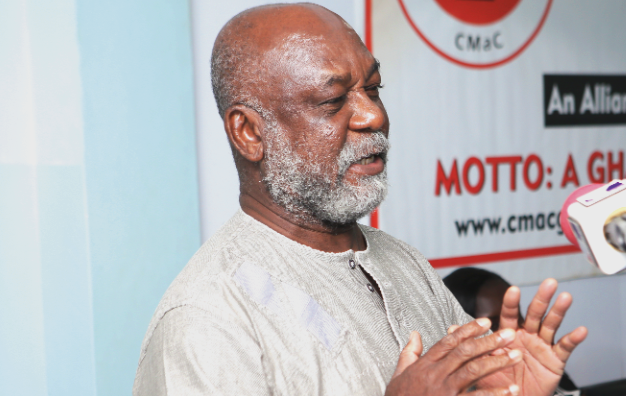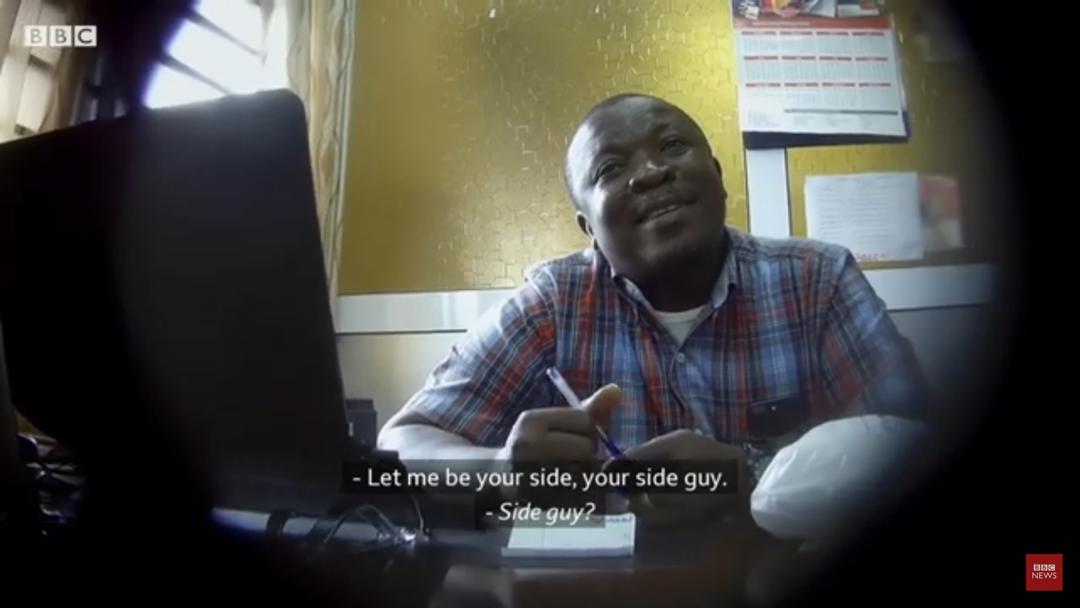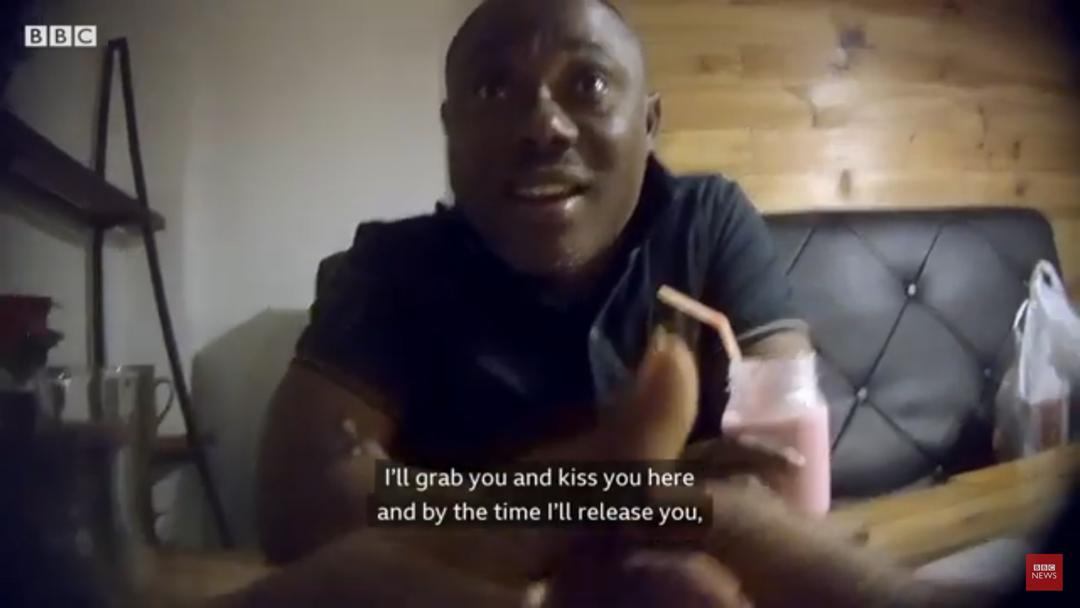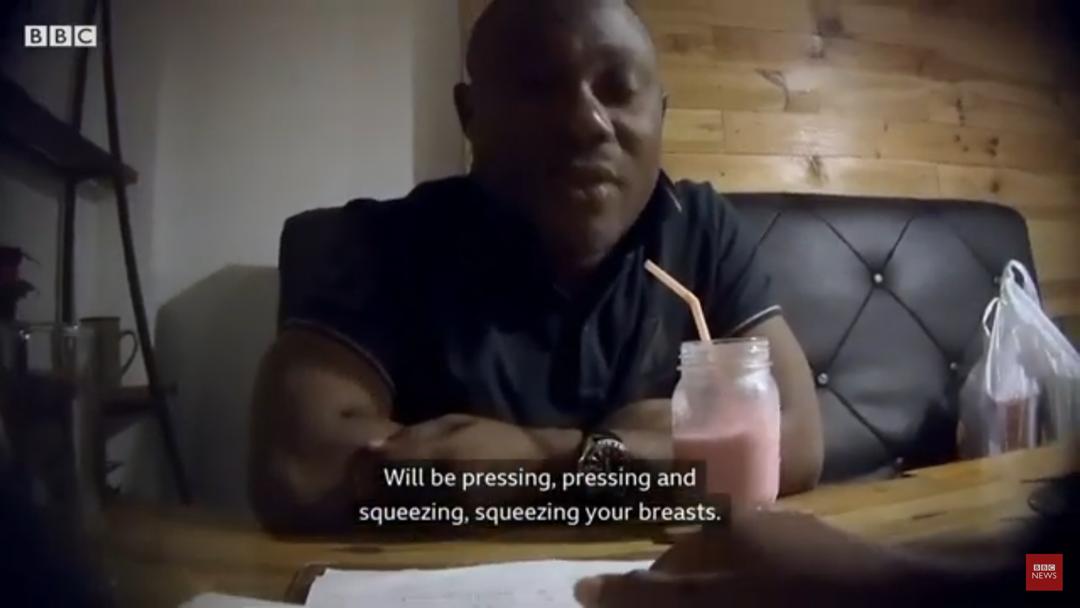
BBC’s 'Sex for grades' documentary not journalistic - Prof Karikari
A veteran lecturer in media studies and founder of Media Foundation for West Africa (MFWA), Professor Kwame Karikari has faulted the BBC’s "Sex for Grades" documentary, describing it as not a journalistic work.
He said the methodology used by the BBC in producing the documentary was problematic.
“I have a difficulty in accepting that the method of creating a scenario and calling it journalism can be accepted as journalism. I’m wondering if the BBC would apply the same method to subjects in the UK or in Europe or in North America. I have not seen the BBC in its newsroom activities using this method of somebody posing as a journalist, exposing something, and the BBC covering that journalism when it comes to Europeans,” Professor Karikari stated whilst reacting to the issue in a radio interview with Accra based Starr FM on Wednesday [October 9, 2019].
In a documentary produced by the BBC Africa Eye and published on Monday, October 7, 2019, the BBC reported that it has uncovered sexual harassment at the University of Lagos and the University of Ghana.
The BBC sent female undercover reporters to the campuses of the two universities where it reported that they were sexually harassed, propositioned and put under pressure by senior lecturers – all the while wearing secret cameras.
Following that, two lecturers at the University of Ghana, Professor Ransford Gyampo and Dr Paul Kwame Butakor, shown in the documentary and accused of engaging in sexual harassment on campus have been interdicted by the university.
Commenting on the development, Prof Karikari, an undisputed voice in media studies in Ghana and beyond said the method employed by the BBC in producing the documentary cannot be used by them [BBC] in other parts of the world including the UK, Europe and the USA.
“In other words, the BBC, for instance, sent a letter to the alleged perpetrator in this case, but ordinarily you will consider that either the same journalist or another journalist would show themselves to the perpetrator.”
“In investigative journalism, the journalist is known by the subject that the journalist is investigating, in other words, the journalist doesn’t hide. So how come the BBC is saying that they are creating a scenario on one hand and calling it what they claim to be. I have a difficulty for anybody to tell me that, the journalist creates his or her own scenario and reports. In other words in journalism, we do know that what the journalist reports has to be objective to the journalist, its not the journalist’s own creation that the journalist report and tells you that, that is news.”
On the BBC’s claim that they picked reports from students who have been victimised in similar scenarios in relation to the subject matter in the hands of the same lecturers [Gyampo and Butakor] mentioned in the documentary, Prof Karikari said, “you see every investigative journalist starts from some information they get, about something that may have happened, and then they start the investigation.”
“In this case, how many of the actual victims did they interview, in other words, how many of the people who have been so abused, could have been interviewed by the reporter, and that reporter would have done a good job…, however the journalism of it could have been better than what I’ve seen.”
Asked if Africa has become a soft target for international media houses in the usage of this kind of methodology in journalism, Prof Karikari responded, “Well in Africa, anything goes so far as the west is concerned about Africa, anything goes, not only the west, but most parts of the world, China, bigger Asian societies, because we ourselves are not working hard enough to pick ourselves from the ground and also be properly counted.”
Read also: Ransford Gyampo and Paul Butakor interdicted over BBC's 'Sex for grades' documentary
Already, Professor Ransford Gyampo, who is a political science lecturer at the University of Ghana has threatened to initiate legal action against the BBC over the documentary which mentions him [Gyampo] as one of the lecturers who offer grades to students in exchange for sex.
UG statement
The University of Ghana’s (UG) statement signed and issued by the Director of Public Affairs, Stella A. Amoa on Tuesday October 9, 2019 said the decision to interdict Prof. Ransford Gyampo and Dr. Paul Kwame Butakor, was to allow for further investigations into the matter.
“In line with University regulations, the two will be invited by the Anti-Sexual Harassment Committee in the next few days to assist with further investigations into the BBC documentary.
“While the University of Ghana believes sexual harassment is fundamentally about exploiting power imbalance and voicelessness, we also understand the harmful impact it has on individuals, families and institutions."
“It is for this reason that the University has taken steps to encourage students and employees to report any form of sexual harassment and misconduct, and has also instituted measures to punish anyone found guilty of the offence."
It added: “In all instances where the University has been provided with information and/or evidence of sexual harassment or misconduct, our Anti-Sexual Harassment Committee has investigated the matter, interviewed the parties involved, and after making a determination, we have applied the appropriate sanctions as outlined in the policy, including dismissals. The University will prosecute the current matter under investigation, in addition to all outstanding cases before the Committee.
“We would like to state emphatically that the University of Ghana does not and will not shield any employee or student found to have engaged in sexual harassment or misconduct. No member of the University is considered above the law," the statement said.

PHOTO: Dr Paul Kwame Butakor
In a radio interview with Accra based Citi FM on Monday [October 7, 2019], Professor Gyampo denied abusing his power to make sexual advances towards students.
Professor Gyampo was allegedly implicated in the “sex for grades” investigations carried out by BBC Africa Eye.
"You've also seen the video, have you seen anything called sex for grades [in the video]. How can you engage in so-called sex for grade relationship with somebody who is not a student in the first place..., I didn’t see anything like that [in the video] and I have not done anything like that,” he said in the radio interview with Citi FM.
Professor Gyampo, who is also the Head of European Studies at the university, according to the BBC report allegedly requested to marry one of the BBC reporters who posed as a student seeking academic favours.

In the video published by the BBC, Professor Gyampo persuaded the reporter to meet him at the mall where he was caught on camera making “numerous [alleged] inappropriate demands.”
In the report, he also allegedly requested to kiss the reporter.
Barnaamijka dabogalka BBC-da ee Afrika Eye ayaa muuqaalo qarsoodi ah ka duubay macalimiin jaamacadeed oo faroxumeyn kula kacaya gabdho arday ah. pic.twitter.com/GGoTiEZMYF
— BBC News Somali (@BBCSomali) October 7, 2019
Professor Gyampo told Citi FM that the video was aimed at tarnishing his image.
He said he will take legal action against the BBC.
"You've [interviewer] also seen the video, have you seen anything called sex for grades? How can you engage in so-called sex for grade relationship with somebody who is not a student in the first place?
"Well this is a clear case of defamation in the first place and initially in my response to the BBC, I told them that I will leave the matter to God and to their conscience, I will not take them on, because I know, and when they were doing it, they made me know, I know that, they have all the resources under the sun to be able to pay for any defamatory claim, any damages I may demand. And I also know that, no amount of monetary compensation will be able to clear the damage that may have been caused, so that was the initial position that I'm not even going to bother them so long as I know that I have not done what they are claiming I have done and their own video evidence does not show that, I will just leave the matter to themselves and also to Ghanaians.
"But my lawyers insist that we must teach them a lesson, so tomorrow [Tuesday, October 8] morning, they [BBC] will see our defamatory suit against them... I think the lady was just hired and paid to come and do what she did, she said she is called Abigail Lamptey and I have every grounds to believe that it may be a pseudonym and we don't know where to find her ever since, she went off her phone and you can't reach her. So we will sue the BBC. The last time I had an encounter [with her] was the last time we were departing from the mall. When she got to the house, I called to find out if she's gotten to the house and she said she is sorry for not getting in touch with me. She was actually in need of my support or my assistance to help her write whatever she wanted to write, so I took the position that, you need me
When he was asked whether he ever had sex with her, Prof Gyampo responded: "I can't do that, I've never done that, you saw the video, I've not done that. I won't ever do that, I'm a gentleman."
Read also: Sex for grades: UG lecturers implicated in BBC exposé [Video]
The hashtag #SexForGrades has been trending worldwide on Twitter.
It's in response to an investigation by BBC Africa Eye that uncovered sexual harassment at the University of Lagos and the University of Ghana.
Related Articles
Nigeria university suspends 'sex for grades' pastor
'Sex for grades': I wont be silenced – Prof Ransford Gyampo
Ransford Gyampo: I'll sue BBC over 'Sex for grades' documentary
Sex for grades: UG lecturers implicated in BBC exposé [Video]
Female reporters were sexually harassed, propositioned and put under pressure by senior lecturers at the institutions – all the while wearing secret cameras.
Reporter Kiki Mordi, who knows first-hand how devastating sexual harassment can be, reveals what happens behind closed doors at some of the region’s most prestigious universities.
Watch the entire documentary below;

